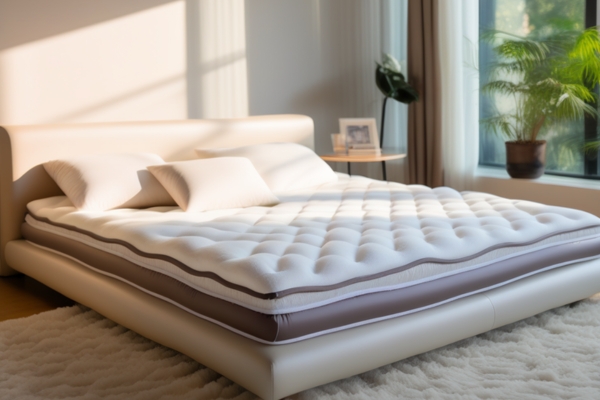Foam vs. Air Mattress – Which Reigns Supreme?
Deciding on the perfect mattress is a big deal – it impacts your sleep quality, comfort, and overall well-being. But when faced with the age-old question of foam vs. air mattress, the choice can feel overwhelming.
Fear not, sleepy adventurer! This in-depth guide dives into the comfort, support, durability, and practicality of both options, helping you pick the champion for your slumber sanctuary. Buckle up, and let’s unravel the mysteries of mattress materials!
Comfort Contenders: Cradling or Cloud-Nine?
Foam: Ah, the cozy embrace of memory foam. Known for its pressure-relieving properties, it molds to your body shape, distributing weight evenly and reducing aches. From plush to firm, a variety of foam densities cater to different preferences. However, some find its conforming nature too warm, especially for hot sleepers.
Air: Ever dreamt of sleeping on a cloud? Air mattresses offer adjustable firmness by inflating to your desired level. This is great for back sleepers or those who like a firmer feel. However, the lack of contouring can lead to pressure points and discomfort for side sleepers. Plus, maintaining the perfect inflation throughout the night can be a challenge.
Support System Smackdown: Spine Aligned or Sagging Saga?
Foam: Memory foam generally provides excellent support, particularly for heavier individuals. However, lower-quality foams can sag over time, compromising back alignment. Consider high-density foam and supportive cores for long-lasting comfort.
Air: While some air mattresses claim good support, their true performance depends on inflation level and construction. Double-layered or internal coil systems offer better support, but basic models can lead to sagging and spinal misalignment.
Durability Duel: Champions Built to Last or Fragile Fighters?
Foam: High-quality memory foam mattresses can last 7-10 years with proper care. However, cheaper models or those with added materials might wear out faster. Punctures are not a concern, but sagging can become an issue.
Air: The biggest durability concern with air mattresses is punctures. Leaks can deflate your sleep haven instantly, and repairs aren’t always foolproof. Even without punctures, the air bladder loses its elasticity over time, leading to decreased support and potential sagging. Expect a lifespan of 3-5 years on average.
Practicality Power-Up: Portable Pals or Space-Hogs?
Foam: Foam mattresses are generally heavy and bulky. Moving them requires muscle and planning, making them less ideal for frequent travelers or temporary setups.
Air: Deflate an air mattress, and it becomes a compact roll, perfect for camping trips, guest beds, or small spaces. Inflation requires a pump, but their lightweight nature makes them highly portable.
Price Point Punch: Budget-Friendly or Investment Splurge?
Foam: Prices vary greatly depending on quality, size, and features. Budget-friendly options exist, but expect less durability and support. High-quality memory foam mattresses are a significant investment.
Air: Basic air mattresses are affordable, making them great for occasional use. However, high-quality, durable models with advanced features can approach foam mattress prices.
The Verdict: A Tailored Throne for Your Slumber
There’s no one-size-fits-all answer. The best mattress depends on your unique needs and priorities:
- Comfort Connoisseurs: If pressure relief and conforming support are your jam, high-density memory foam could be your champion.
- Adjustable Adventurers: For customizable firmness and portability, a quality air mattress might be your perfect travel companion or guest bed solution.
- Supportive Sleepers: Back sleepers or those needing firm support might find their match in either a high-density foam or double-layered air mattress with proper back support features.
- Durability Devotees: For long-lasting comfort and peace of mind, invest in a high-quality memory foam mattress.
- Budget-Conscious Buyers: If affordability is key, a basic air mattress might suffice for occasional use. However, remember you might sacrifice comfort and durability.
Bonus Round: Tips for a Winning Sleep
- Test before you buy: Whenever possible, try out the mattress before committing. Lie down, move around, and see how it feels.
- Consider your sleep style: Are you a hot sleeper? Do you toss and turn? Choose a mattress that caters to your specific needs.
- Invest in a good foundation: A sturdy base ensures proper support and extends the lifespan of your mattress.
- Proper care is key: Follow the manufacturer’s instructions for cleaning and maintaining your mattress for optimal performance.

